More Than Words: A Promise of
Hope Delivered

On January 10, 2025
At Harinagar Slum

On January 10, 2025
At Harinagar Slum
The morning of January 10, 2025, began like any other in Harinagar Slum—another day of waiting, another day of hunger. But today, something was different. Today, hope was on the way.
Packing More Than Just Food—Packing Hope
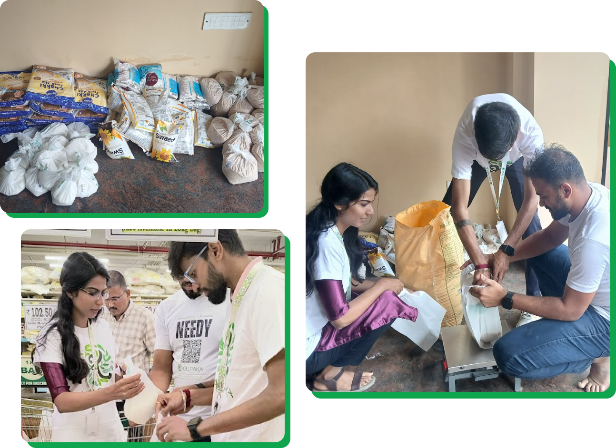
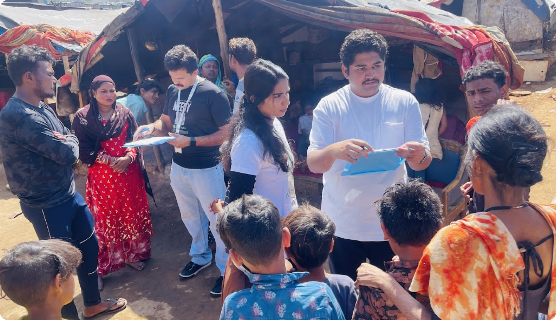
The Arrival: A Community Waiting
As we entered Harinagar Slum, we saw mothers clutching their children, their eyes filled with quiet desperation. Fathers stood nearby, their expressions unreadable (Their faces revealed nothing yet spoke volumes), their pride keeping them from asking for help. And the children—watching, waiting, hoping.
And that’s when we knew — fifteen was not enough.
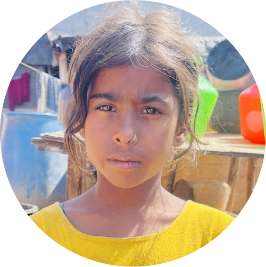
PARVINDH
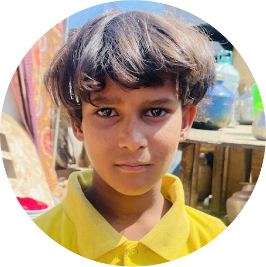
NAINA
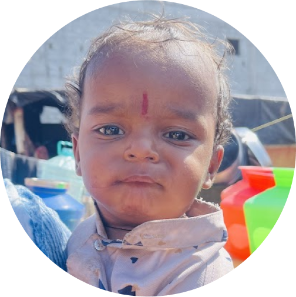
RAGHAV
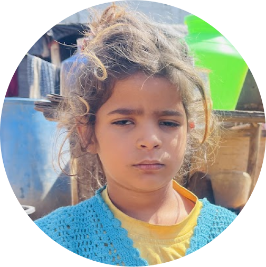
TAMANNA
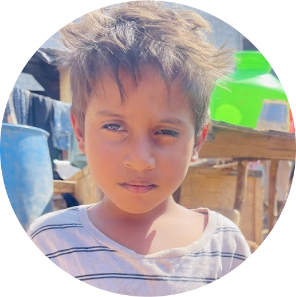
ANUSH
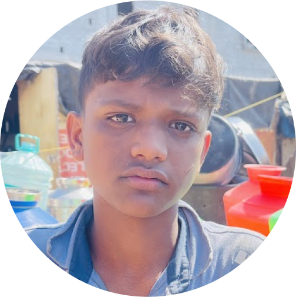
MIRAJUDEEN
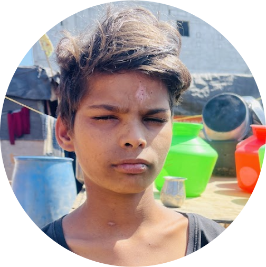
ROHIT
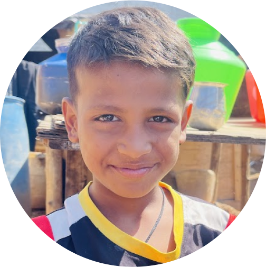
SULTAN
More Children, More Lives to Change
More Than a Milestone,
A Movement
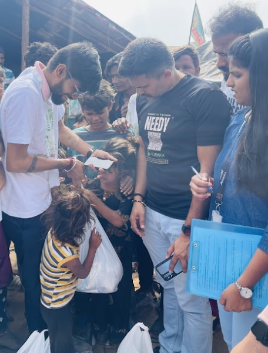
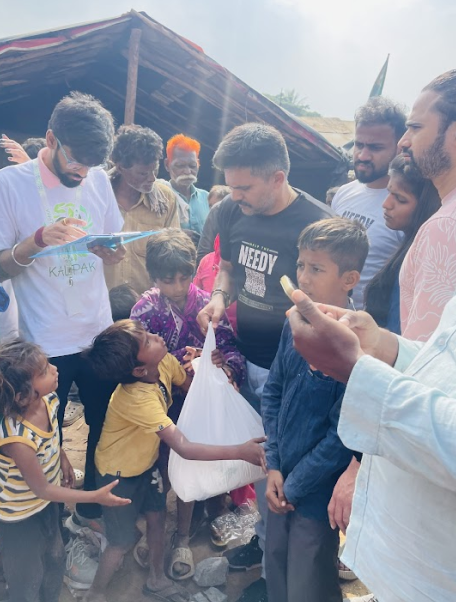
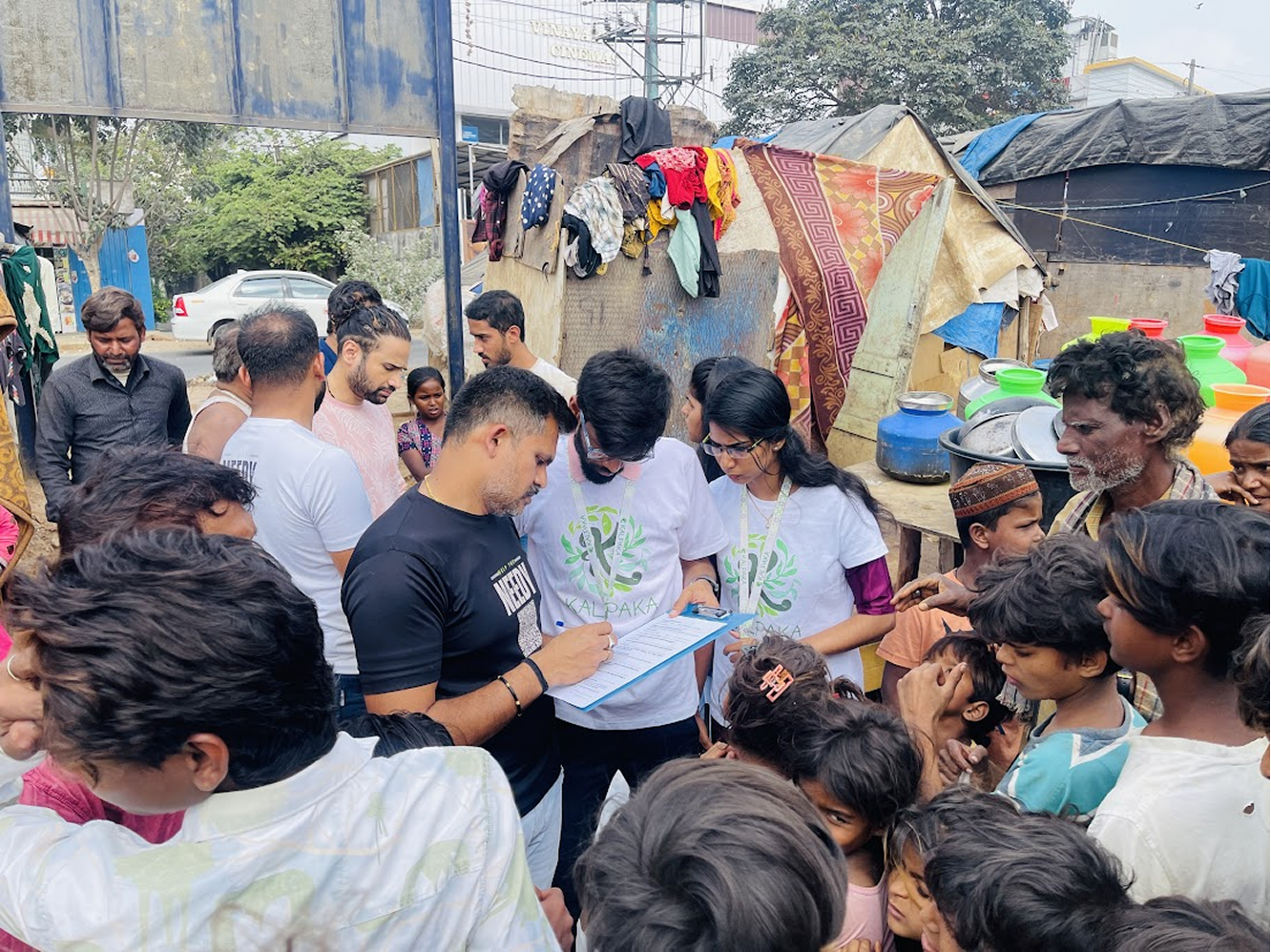
Want to help, but don’t know where to start? Volunteer with us.
Want to help, but don’t know where to start? Volunteer with us.
Address
Address: No. 98/2, 1st Floor, SC Complex, Surabhi Nagar West, 8th Phase, J. P. Nagar, Bengaluru, Karnataka 560076
- Email: info@kalpaka.org
Support a Cause & Avail Tax Benefits
Kalpaka Foundation is a registered NGO under the Income Tax Act, and all donations made to us are tax-exempt under Section 80G of the Income Tax Act, 1961. Your contributions help us drive impactful initiatives while providing you with tax benefits.
For more details, feel free to contact us or refer to the official registration details.
Kalpaka Foundation – AAFTK6965R
(URN: AAFTK6965RE20241, Valid from AY 2025-26)
